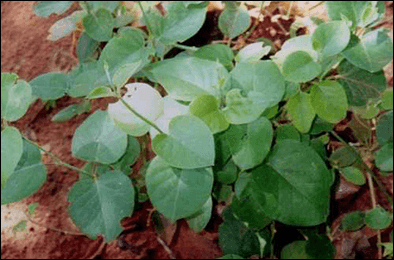
What is Leptadenia Reticulate?
This is a very valuable medicinal plant commonly known as Jivanti. This herb is popularly known for its restorative and stimulant properties used to treat various health ailments. It provides minerals, vitamins, and other valuable nutrients. This herb helps to increase and maintain the body’s strength to fight against various diseases. Leptadenia reticulate rejuvenates and nourishes the body and increases memory, longevity, and immunity of the body. Its Sanskrit name Jivanti implies that improves overall health and vigor.
General Description of Leptadenia reticulate
It is branched shrub which has a flower of greenish yellow color. Stems are bent and cylindrical and measure 5-10cm long and 0.5-2.5cm in diameter. The surface of Leptadenia reticulata is ridged, rough, furrowed and wrinkled. Lenticles are vertically elongated and externally it is whitish brown, pale brown internally and splintery. Odor and taste of this plant are not characteristic. The bark of this plant is deeply cracked, corky and yellowish brown in color. Leaves measure 4-7.5cm long and 2-5 cm and are ovate in shape. The petiole is 1-3cm long above glabrous and below pubescent. Roots of Leptadenia reticulata are 3-10cm long and 1-5 cm wide, white colored, rough with furrows and ridges longitudinally.
What are the Common Names Used for Leptadenia Reticulate?
Jivanti, Bhadjivai, Dodi, Hiranvel, Plaikkodi, Kalasa and Radarudi.
How is Leptadenia Reticulata Scientifically Classified?
- Kingdom – Plantae
- Class – Angiospermae
- Cladus – Eudicots
- Order – Gentianales
- Family – Asclepiadaceae
- Subfamily – Asclepiadoideae
- Tribe – Ceropegieae
- Subtribe – Leptadeniinae
- Genus – Leptadenia
- Species – reticulata
Where do Leptadenia Reticulata Grows Usually?
In India, this plant grows in the sub-Himalayan region of Uttar Pradesh, Punjab and all over the Deccan Peninsula. Internationally it is distributed throughout Madagascar, Mauritius, Burma, and Sri Lanka.
What Type of Soil and Climatic Conditions Required for Leptadenia Reticulata Growth?
This herb grows well in warm subtropical and tropical areas with open sunlight and moderate rainfall. For its commercial cultivation alluvial black and sandy loam soils are good. It can also be grown on red laterite soils.
Which Part of the Leptadenia Reticulata Used for the Medicinal Purpose?
Whole plant.
What are the Ayurvedic Properties of Leptadenia Reticulate?
- Taste (rasa) – Sweet (madhura)
- Qualities (guna) – Light (laghu), Unctuous (snigdha)
- Vipaka (transformed state after digestion) – Sweet (madhura)
- Potency (veerya) – Cold (sheeta)
What is Leptadenia Reticulate Effect on Tridosha?
This herb pacifies all the three doshas, i.e. Vata, Pitta, and Kapha Dosha.
What is the Chemical Composition of the Leptadenia Reticulate?
N-triacontane, cetyl alcohol, betaamyrin acetate, beta-sitosterol, lepitidin glycoside and lupanol 3-O diglucoside.
What are the Medicinal Properties of Leptadenia Reticulata?
Vasodilator, antidepressant, anti-abortificant, antianaphylactic, anticancerous, antimicrobial, cardiovascular stimulant, and anti-implantation.
What are the Medicinal Uses of Leptadenia Reticulata?
- It relaxes the smooth muscle cell in the vessel walls, i.e. arteries, veins, and small arterioles and causes widening of the blood vessel. It prevents tightening of muscle and narrowing of walls resulting in easy blood flow through the vessels.
- This herb helps to relieve symptoms of depression, anxiety disorders, seasonal affective disorder, and dysthymia. It helps to treat symptoms like mood swings, sadness, loss of appetite, and insomnia.
- Immunity and overall strength are improved by the use of this herb.
- It treats bleeding disorders like nasal bleeding.
- Burning sensation anywhere in the body is relieved by Leptadenia reticulata.
- Absorbent action of this herb helps in treating inflammatory bowel disease and diarrhea.
- Leptadenia reticulata prevents a threatened and recurrent abortion when used during pregnancy.
- It improves the total count and motility of the sperms. This herb also treats debility due to seminal discharges.
- This herb has an anti-inflammatory property which relieves redness, pain, and swelling of the affected area.
- This herb helps to treat benign prostatic hyperplasia and improve the flow of urine out of the bladder, difficulty in micturition and burning in urination.
- Leptadenia reticulata have anti-anaphylactic action which relieves contraction of smooth muscle and dilation of blood vessels.
- It inhibits or stuns the growth of cancerous cells and prevents cancer. This herb decreases cancer cell number and tumor weight.
- This herb acts as a natural contraceptive and prevents implantation after fertilization.
- Antimicrobial and antibacterial activity of this herb prevents infections and various diseases.
- It lowers the blood pressure and used to treat patients with hypertension.
- Heart diseases can be relieved by the use of this herb.
- Fever and its associated symptoms like weakness, vertigo, nausea, loss of appetite and body pain can be relieved by Leptadenia reticulata.
- Vision and visual problems can be treated by this herb.
- Healing of wounds can be accelerated by the external application of it.
- Leptadenia reticulata nourishes and tones the body as a whole.
- During the lactation period, it can be used to increase breast milk.
- Leptadenia reticulate prevent epileptic fits.
- This herb prevents or heals ulcers of any kind.
- Elevated serum SGOT (serum glutamic oxaloacetic transaminase, SGPT (serum glutamic pyruvic transaminase) and ALP (alkaline phosphatase) levels are significantly reduced by the use of this herb.
- It is used to treat asthma as this herb decreases the phlegm.
What can be the Side-Effects of Leptadenia Reticulata?
No side-effect is seen or reported after use of Leptadenia reticulata.
